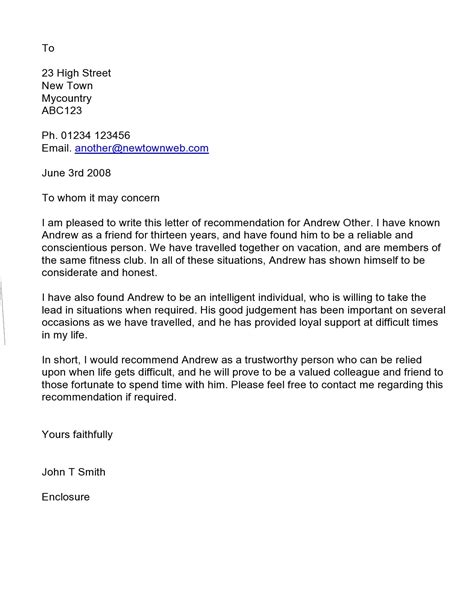Writing A Reference Letter For A Friend

Writing a reference letter for a friend can be a daunting task. However, it is a great way to help your friend achieve their goals, whether it be for a job, scholarship, or other opportunities. Your letter can make a significant impact on the recipient’s decision. Here is a step-by-step guide on how to write a great reference letter for your friend.
1. Understand the Purpose of the Reference Letter
Before starting to write the letter, it is essential to understand the purpose of the reference letter. The purpose is to provide an endorsement or recommendation of the person being referred to. It should include specific details about the person’s skills, work experience, character, and achievements. The letter should also explain why the writer is recommending the person and what makes them stand out.
2. Gather Information
Before writing the letter, gather all the necessary information about the person you are writing for. This should include their full name, contact details, and the purpose of the reference letter. You should also ask them to provide you with any information that they think is relevant, such as their resume, cover letter, or job description.
3. Follow the Standard Format
Reference letters generally follow a standard format. It should include an introduction, body paragraphs, and a conclusion. The introduction should include the writer’s name, their relationship with the person being referred to, and the purpose of the letter. The body paragraphs should include specific examples that illustrate why the person being referred to would be an asset to the recipient. The conclusion should summarize the letter and reiterate the writer’s recommendation.
4. Use Specific Examples
Using specific examples is essential in making the letter more convincing. It helps to illustrate the person’s skills, work experience, character, and achievements. For example, if the person being referred to is an excellent communicator, you could provide an example of a situation where they demonstrated their communication skills.
5. Be Honest
It is essential to be honest in the reference letter. If you cannot provide a positive reference, it is better to decline the request. Being dishonest can have a negative impact on both the person being referred to and the recipient.
6. Proofread and Edit
Before submitting the letter, proofread and edit it thoroughly. Check for grammatical errors, spelling mistakes, and punctuation errors. Ensure that the letter is well-structured and easy to read. A well-written and error-free letter can have a significant impact on the recipient’s decision.
7. Provide Contact Information
Provide your contact information in the letter, including your name, phone number, and email address. This will allow the recipient to contact you if they have any questions or need additional information.
8. Offer to Provide Additional Information
Offer to provide additional information to the recipient if they require it. This could include a phone call or an in-person meeting to discuss the person being referred to further. This shows that you are willing to go the extra mile to help your friend.
9. Conclusion
Writing a reference letter for a friend can be a challenging task, but it is also a great opportunity to help them achieve their goals. By following these steps, you can write a convincing and well-structured letter that will have a positive impact on the recipient’s decision.
FAQs
What should be included in a reference letter?
A reference letter should include the writer’s name, their relationship with the person being referred to, the purpose of the letter, specific examples that illustrate the person’s skills, work experience, character, and achievements, and a summary of the letter.
How long should a reference letter be?
A reference letter should be one or two pages long. It should be concise and to the point.
Can I decline to write a reference letter?
Yes, you can decline to write a reference letter if you cannot provide a positive reference. Being dishonest can have a negative impact on both the person being referred to and the recipient.
Should I include negative information in the reference letter?
No, you should not include negative information in the reference letter. The purpose of the letter is to provide a positive endorsement or recommendation of the person being referred to.
Can I provide additional information to the recipient?
Yes, you can offer to provide additional information to the recipient if they require it. This could include a phone call or an in-person meeting to discuss the person being referred to further.
